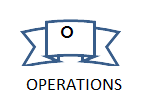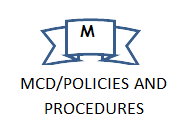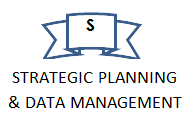Special Education Instruction
Page Navigation
-
Instruction Home
-
K-12 Instructional Programs and Supports
- Deaf and Hard of Hearing (DHH) Program
- Moderate/Severe Instructional Programs
-
Positive Behavior Support
- Contact Us
- Behavior Related Services
-
Trainings
- Functional Behavior Assessment (FBA) Training
- Online Behavior Intervention Implementation (BII) Service Tracking Course
- Online Classroom Management Modules
- Online Functional Behavior Assessment (FBA) Overview
- Professional Development for ED SDP Teachers
- Behavior Safety-Care Emergency Training (B-SET)
- Parent Resources
- FAQ
- Transitioning to Life After High School - DOTS
- Visual Impairment (VI) Program
-
K-12 Instructional Programs and Supports
- Inclusion
-
Effective Classroom Teaching and Learning: Supports and Services
- Access for All: Universal Design for Learning
- Accommodations, Modifications, and Instructional Supports
- Achieving Success: Exiting Special Education Support - Transition from High School
- Dyslexia Awareness
- English Learners and Students with Disabilities
- Extended School Year (ESY)
- For Parents, Students, and Families
- Intervening Early and Often: Multi-Tiered Systems of Support (MTSS)
- Learning Centers and the Resource Specialist Program
- Independent Charter Schools
- Early Childhood Special Education
- Least Restrictive Environment Support
- Private School Support
- Psychological Services Department
- Related Services
- Special Education Home Page
- Los Angeles Unified School District
- Effective Classroom Teaching and Learning: Supports and Services
Effective Classroom Teaching and Learning: Supports and Services
-
Access for All: Universal Design for Learning
Universal Design for Learning (UDL) is a set of principles for curriculum development that give all individuals equal opportunities to learn. UDL provides a blueprint for creating instructional goals, methods, materials, and assessments that work for everyone--not a single, one-size-fits-all solution but rather flexible approaches that can be customized and adjusted for individual needs.
Accommodations, Modifications, and Instructional Supports
Students with disabilities often benefit from tools and strategies that are designed to increase access to curriculum, instruction, and assessments.
Achieving Success: Exiting Special Education Support - Transition from High School
The goal of special education services is to prepare students with disabilities to lead an independent life. Exiting from special education support is a critical step toward lifelong learning and independence.
Elementary (K-5) and Secondary (6-12) common core goal stems and additional documents.
Dyslexia is a language-based disability that is characterized by difficulties in learning how to read fluently.
English Learners and Students with Disabilities
Students with disabilities who are English learners need specialized curriculum and instruction in order to meet the District’s criteria for reclassification as Fluent English Proficient.
Some students with disabilities need Extended School Year (ESY) services in order to prevent learning loss over the summer or during off-track time.
For Parents, Students, and Families
Parents, students, and families are key partners in the learning process. This is a redirect to the Families webpage.
Intervening Early and Often: Multi-Tiered Systems of Support (MTSS)
When students struggle, learning in school is difficult. Using a multi-tiered system of instructional services, supports, and strategies, all students can learn regardless of their disability.
Learning Centers and the Resource Specialist Program
The learning center is a support for students with disabilities who participate in the general education program for most or all of the school day. Staff from the resource specialist program, in collaboration with general education teachers, can utilize the learning center to help students access the core curriculum.







